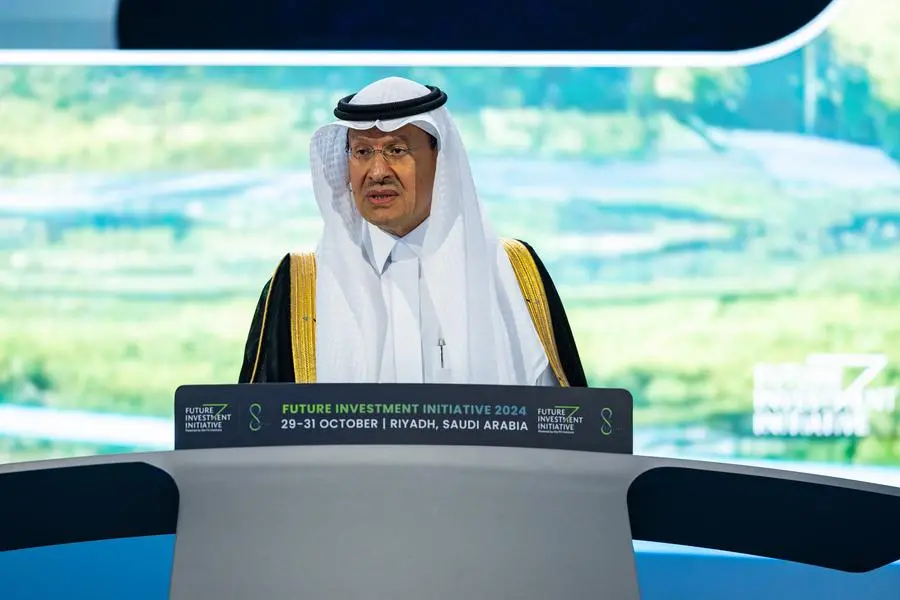PHOTO
Saudi Arabia’s Minister of Energy, Abdulaziz bin Salman, hit back at critics as he doubled down on the kingdom’s commitment to increase its oil production capacity to 12.3 million barrels per day, while speaking at the Future Investment Initiative in Riyadh.
“Going forward, we will meet the call on crude oil by maintaining our maximum sustainable capacity of 12.3 million bpd, with plans to also further our gas capacity from the current 13 billion cubic feet per day currently to a 60% growth by 2030 to support economic growth,” Salman said.
While the kingdom has been diversifying its economy with a heavy focus on renewables that has resulted in partnerships with China in recent months, the Minister said the world needs a Saudi Arabia to maintain potential in global oil supply, especially in the face of natural declines or risk losing it.
Focus on hydrogen, China
The minister referred to the kingdom as the “biggest producer of hydrogen today”, with plans to export clean hydrogen.
“Our goal is to export green energy in the form of renewable power and clean hydrogen,” he said, but stressed that the kingdom needs to ensure it is available for investors where emission reduction is difficult.
“Domestically, we need to utilise and export clean products to decarbonise hard-to-abate sectors,” he added.
Saudi, which has tendered 44 GW of renewable energy, is targeting to take that number up to 130 GW by 2030, based on demand growth.
To achieve this growth, the kingdom is relying on its $930 billion sovereign wealth fund, the Public Investment Fund (PIF), to facilitate this energy transition by boosting ties with China to improve its green infrastructure and capabilities.
In July, PIF signed three agreements with Chinese companies to localise the manufacturing and assembly of equipment and components needed for solar and wind power in Saudi.
Overall, PIF, through Acwa Power and Badeel, is currently developing a total of eight renewable energy projects with a total capacity of 13.6 GW, involving over $9 billion of investment from PIF and its partners.
(Writing by Bindu Rai, editing by Seban Scaria)





















